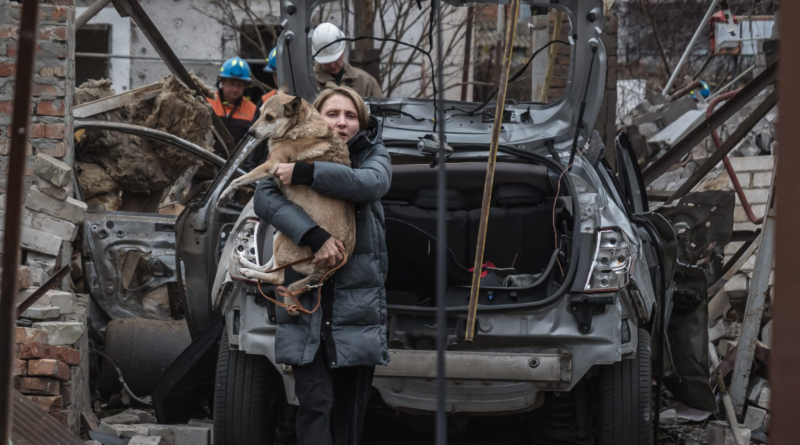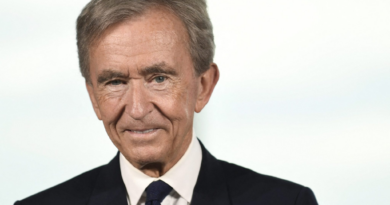Europe on edge: What Trump 2.0 means for Ukraine, NATO, and the EU
The election of Donald Trump has already redrawn America’s electoral map, but Trump’s foreign policy agenda likely has far-reaching consequences for the geopolitical map of Europe, too.
Since 2016, Mr. Trump has proposed significant departures from business as usual: reducing America’s involvement in NATO, making significant concessions to Vladimir Putin’s Russia, and even buying Greenland. Now that Trump has won, what will be next? If Ukraine cannot withstand the Russian incursion, nor count on the West’s support, who’s to say that the Baltics would be exempt from a similar invasion from Moscow?
With more experience, the self-confidence of a popular mandate, and a deep bench of loyalists ready to fill the ranks of the U.S. State Department, America’s voters and the policymakers of Europe must consider the security implications for Europe, and how to maintain democracy in the region.
The most immediate change under a second Trump administration will be a reduction in U.S. military and economic aid to Ukraine. Trump has repeatedly criticized the level of American involvement in the conflict, suggesting that Europe should take more responsibility for its own defense.
During his previous term, Trump often expressed frustration with European allies, accusing them of not contributing enough for their own security, notably at NATO, and calling on Russia “to do whatever the hell they want” to any NATO country that doesn’t pay its fair share. This might be true for the “old European” members of the EU, like France, Germany, and Italy, but not for the newer members in the East. In fact, both Estonia and Poland spend an even larger percentage of their GDP on defense than the U.S. Trump’s isolationist stance promises less U.S. funding (or none at all), making the future of the war in the region look very different.
Trump’s transactional approach to foreign policy will force Ukraine to make territorial concessions in order to end the war. This could involve pressuring Ukraine to cede control of Russian-occupied territories such as Crimea and the Donbas, compromising Ukraine’s sovereignty and territorial integrity. Such a move would not only embolden Putin but also set a dangerous precedent for other authoritarian regimes seeking to expand their influence through military aggression. Such a change in policy would also abandon the fundamental principle of the Post-World War II order: Borders may not be changed through force or the threat of use of force.
Moreover, Trump’s support for Putin’s insistence on Ukrainian neutrality will leave Ukraine vulnerable to future Russian aggression. By removing the prospect of NATO protection, Trump would weaken Ukraine’s security and undermine its aspirations for closer integration with Western institutions like the European Union. This would be a victory for Russia.
Trump’s next term also puts the Baltics within Putin’s reach. A weakened NATO due to reduced U.S. involvement in Ukraine would have far-reaching consequences for European security. Countries on NATO’s eastern flank, including Poland and the Baltic states, would be especially vulnerable. These nations have been among the most vocal supporters of Ukraine and have significantly increased their defense budgets in response to Russian aggression.
Putin has made no secret of his desire to reassert Russian influence over former Soviet territories. A tempered Western response, like a lack of U.S. leadership in NATO or continued military aid to Kyiv, will embolden Putin to encroach on Central Europe.
Finally, Trump will divide Europe’s long-term response to the war. Recent electoral gains by far-right parties across the continent suggest that public opinion is shifting in some countries towards the appeasement of Russia. In Austria, France, and Germany, right-wing parties have already made significant gains by capitalizing on fatigue over rising energy and food prices caused by sanctions against Russia. If Trump were to reduce U.S. involvement in Ukraine as he has suggested, it could further embolden these parties to push for similar policies within their own governments.
This fragmentation could weaken the European Union’s unified stance against Russian aggression, a position that has been more or less ironclad since the end of the Cold War. Countries with authoritarian leanings such as Hungary under Viktor Orbán, have already shown a willingness to break ranks with Brussels on Russia-related issues.
A divided Europe will struggle to maintain pressure on Moscow through sanctions or military support for Ukraine, leading to a fractured response with grave implications for security not just across the continent, but anywhere in the world where authoritarian governments seek to change borders by force.
More must-read commentary published by Fortune:
The opinions expressed in Fortune.com commentary pieces are solely the views of their authors and do not necessarily reflect the opinions and beliefs of Fortune.




